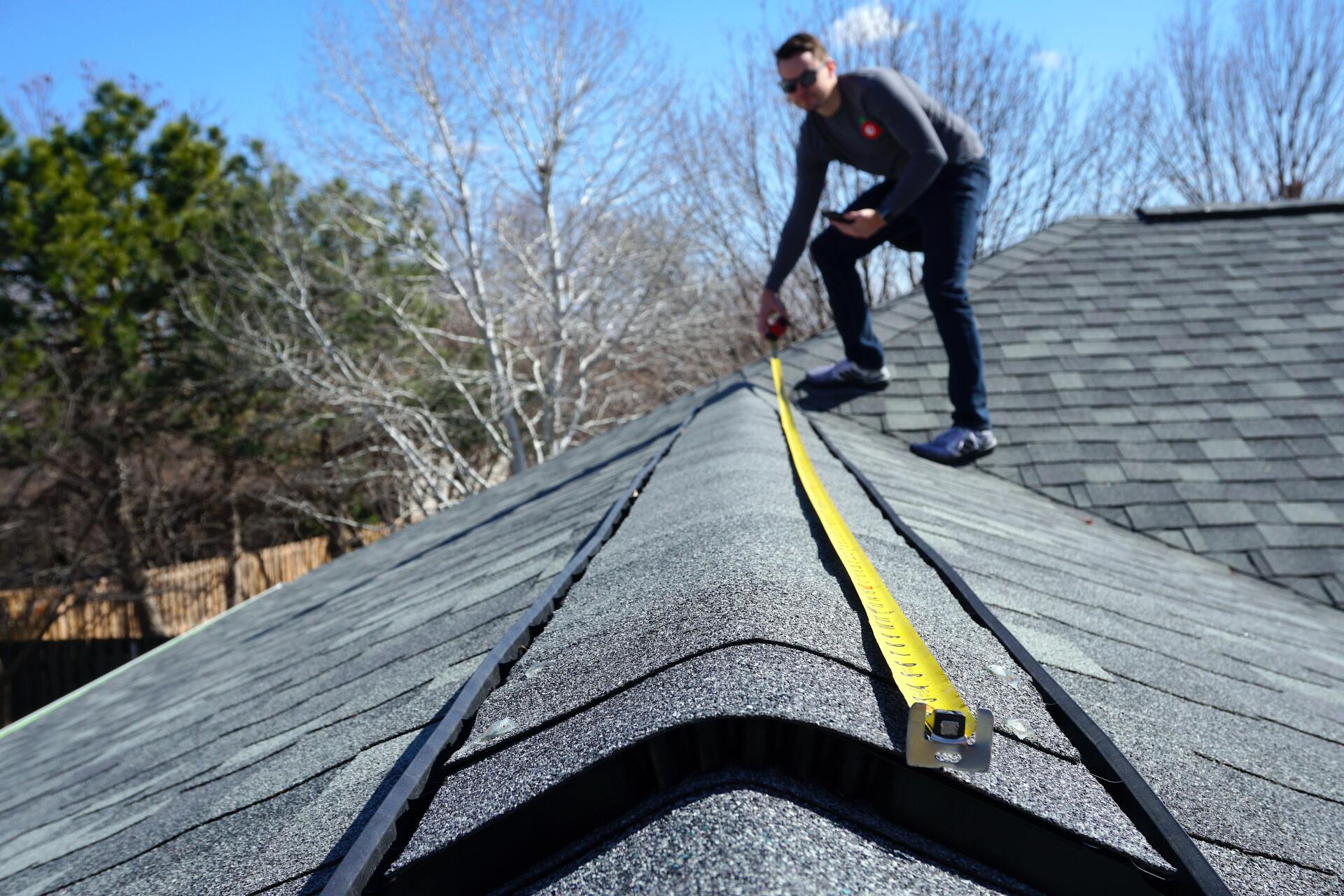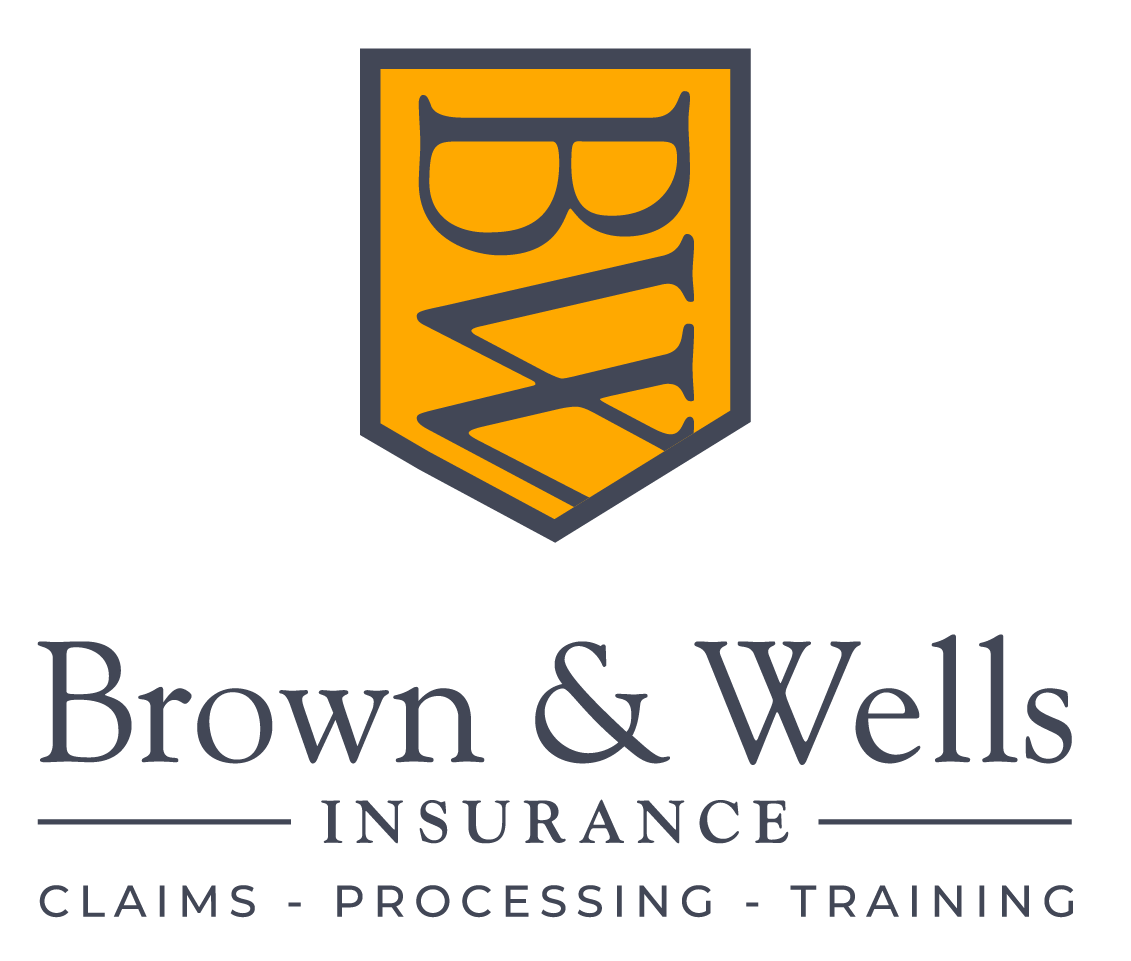News & Updates

January 25, 2022
Somehow, it’s already that time of year again: tax time. How much you will owe this year depends on how your situation is set up and how well organized you are. Sorting through receipts, calculating deductions and filing taxes isn’t fun or easy for anyone but is even more difficult for independent insurance adjusters who are 1099 (sometimes handling multiple 1099s in a year or at the same time) and organizing deployment expenses. Most new adjusters and many experienced adjusters are also unclear on the business entity options available to them, such as limited liability companies and S corps. Some adjusters will elect to get paid on a day rate as a W-2 employee, in which case these strategies won’t all apply, but our first strategy applies to everyone across the board. If you or an independent adjuster you know is struggling to make sense of their taxes, here are our strategies for minimizing your taxes. Find the Best Tax Preparer or Tax Advisor Near You As new adjusters, we had to learn this the hard way. We had never made $100,000 in a year before becoming an adjusters and made the mistake of going to one of the big box tax preparers our first year. Needless to say, we didn’t file all of our deductions or write off the expenses we were entitled to. Our second year we went back (one of those fool me once situations) and a different advisor took our taxes in a different and equally unbeneficial way. Life is such a great teacher that when you do not learn a lesson, it will repeat itself all over again We finally learned our lesson and found the best CPA we could find in our area and we recommend you do the same. Our CPA costs a couple hundred dollars more annually than the big box tax preparers and saves us TENS OF THOUSANDS OF DOLLARS every year. During your search for tax advisors there are several things you need to do; Interview and make sure they’re a good fit for you Ask for a Preparer Tax Identification Number (PTIN) Require a CPA, law license or enrolled agent designation If you have friends or family in high places, ask them who they use (finances shouldn’t be taboo) Compare tax advisor fees Reconsider tax advisors who don't e-file Confirm they'll sign on the dotted line Form an LLC or S corp. As an independent adjuster, you are your own boss, accepting assignments from your clients (IA firms). Many adjusters choose to form their own business entities, which can offer tax benefits as well as asset protection. The most common ways to incorporate are as a limited liability company (LLC) or an S corp. Either way, you can only be held liable for the amount you’ve invested in the company, protecting your home and other assets if something goes wrong. LLCs can have an unlimited number of members; S corps can have no more than 100 shareholders (owners). Non-U.S. citizens/residents can be members of LLCs; S corps may not have non-U.S. citizens/residents as shareholders. S corporations cannot be owned by corporations, LLCs, partnerships or many trusts. LLC owners must pay a 15.3% self-employment tax on all net profits*. S corporations have looser tax and filing requirements than C corporations. An S corp. is not subject to corporate income tax and all profits pass through the company. The S corp offers another substantial benefit, too – potentially reducing your income taxes. As the owner of an S corp, you can pay yourself a “reasonable” salary from your earnings and then take the rest of your income as dividends, which are taxed at a lower rate. LLCs do require maintenance, but it's nowhere near as formal as a corporation. A corporation requires an annual meeting, corporate minutes, and more. With an LLC, it's less corporate, so you don't necessarily have to do that. You can if you want, but it's not required. You do, however, have to file a report with the Secretary of State, which is typically required on an annual basis. Laws can vary by state, so talk to an accountant to decide which type of entity makes sense for you and your business. Write off more than you spend It isn’t against the law – it’s just smart business. If you spend a lot of time on the road for deployments, hotel and meal expenses can add up. Some adjusters try to stay organized by adding receipts to a spreadsheet or only using one credit card for their travel expenses, but it can be difficult for busy adjusters to keep up with all those costs. The truth is, you don’t need to know the exact dollar amount that you spent to write it off on your taxes. The federal government allows you to deduct a per diem allowance from your taxable income, based on your location. That means you’re entitled to a different per diem rate working in downtown Manhattan than in Manhattan, Kansas. For independent adjusters who spend dozens or even hundreds of days a year working in various locations, calculating all those per diem rates can be tougher than keeping track of receipts. Failing to take these deductions, though, means potentially leaving a lot of money on the table. To make sure you’re taking all your deductions, consider software solutions or professional services that do the legwork for you. The initial cost is often far less than the money you’ll save on your return. Track your income and expenses How many claims have I completed? Have I been paid for each one? Am I working with the right companies? Tracking payments and expenses is especially important for adjusters juggling assignments from multiple firms. Since most firms pay based on successful claim closures, not just submitting a claim file for review, you may need to follow up on claims so you’re not paying taxes on income that never actually arrived. Make sure to submit reimbursements for expenses outside of your per diem, too, such as new laptops, ladders or software license fees (Xactimate costs $250 per month if you pay out of pocket). Doing your taxes is unavoidable, but it doesn’t have to be so painful. By educating yourself about accounting and tax strategies, independent adjusters can save time and keep more of their hard-earned money in their bank accounts.

January 25, 2022
The first thing every military veteran (enlisted and commissioned) transitioning to civilian life considers is a civilian career that matches past military training and experience. This is often a hard task to accomplish, and most veterans don’t know where to start. In a 2019 Pew Research Center study, 95% of veterans pursued civilian employment after serving in the military, 26% of veterans that served before 9/11 said finding a civilian career was very difficult or somewhat difficult and that percentage jumped to 48% for veterans who served after 9/11. Even after finding a job in the civilian job market, most veterans don’t find a good fit right away. A 2016 joint study conducted by VetAdvisor and the Institute for Veterans and Military Families found 43% of veterans remained in their first civilian job for 12 months or less and more than 80% were in their first civilian job for less than two years. The reasons military veterans don’t stay at their first civilian job vary, but the top five most important factors are; 1) Opportunities to Use Skills and Abilities 2) Compensation/Pay 3) Meaningfulness of Job 4) Job Security 5) The Work Itself Today, veterans have access to tons of resources to help them navigate their post-military careers. The Transition Assistance Program offered by the Department of Veterans Affairs is a good place to start, but there are other options too and we believe our insurance adjuster training program is one of them. Military veterans that decide to pursue an independent insurance adjuster license get to showcase their skills and abilities (attention to detail, creative problem-solving, time management, communication, adaptability to change, etc.), are compensated handsomely for their work (most adjusters earn incomes in excess of $100,000 annually), help people put their lives back together after a loss or catastrophic event, are part of an industry that is both recession and depression proof and never see the same thing twice. Military veterans THRIVE in this career field. My wife Lindsay and I are both full time insurance adjusters and Air Force Veterans and have loved every minute of this career. Our American Legion Commander (Navy Veteran) has his insurance adjuster license, our American Legion Vice Commander (Marine Veteran) has his insurance adjuster license and the owner, Mike Popejoy, of Mile High Adjusters in Colorado is a Marine Veteran. We have also made friends and connections with every veteran that we have had the pleasure of training, including a good friend of ours now who is an Army Veteran from Upstate New York (and he is CRUSHING IT). If you’re getting ready to transition out of the military or already have and are interested in exploring your career options, please give me a call. I would love to talk to you about how you can become an insurance adjuster in this profitable and rewarding career field (even if I can’t talk you into coming to train with me). Best of luck and thank you for your service! Geoffrey Johnsey – Owner Brown & Wells (973) 784-4499 brownandwells.com

January 25, 2022
A lot of people ask me how they can become an independent insurance adjuster, and honestly, it’s not too difficult. When you consider the time, money and energy it takes to get a college or technical degree there isn’t anything as simple you can do to start a new career with the earning potential of $100,000 or more annually (some CAT adjusters earn $60,000 - $100,000 in ONE MONTH during the storm season). A career change into independent insurance adjusting is so simple, you can be on your way to claims in just a few short weeks. Step 1: Confirm Insurance Adjusting is Right for You Insurance Adjusting is one of the last truly great careers in America. The industry is recession proof, depression proof and stable. As long as you adhere to your guidelines you will always have work, but the work isn’t for everybody: Skills and Qualifications Required: The qualifications required to become an independent insurance adjuster are pretty simple; be at least 18 years old, hold a valid driver’s license, be a resident of your state and pass a background check. But it’s the skills that set the best adjusters apart; self-discipline, an excellent worth ethic, and great communication skills. Challenging but Rewarding: Let me tell you about the mountain you’ll have to climb. Claims adjusting can be equally challenging and truly rewarding, both monetarily and emotionally. Adjusters work hard, have deadlines to meet and can become over encumbered if they don’t advocate for themselves… but the harder you work, the more money you make. And helping people put their lives back together is a reward on another level. Always in Demand: Insurance adjusters are in demand in any economy because claims remain steady regardless of economic factors (depression, recession, slowdown). When it comes to insurance adjuster salaries, annual earnings exceeding $100,000 are realistic for independent daily claims adjusters, can be earnings for a month or two for CAT adjusters and staff adjusters (requiring a bachelors degree) who work directly for insurance carriers earn salaries ranging from $45,000 to $80,000 or more. CAT Adjusting/Storm Adjusting In catastrophe situations (hurricanes, flooding, tornadoes, etc.) the huge volume of claims causes a massive increase in the demand for adjusters. During these spikes, a good CAT (Catastrophe) adjuster can earn more in a few months than he or she would normally earn in an entire year. CAT Adjusters have to be available for immediate deployment, are typically responsible for their own travel and expenses (we recommend having a war chest of $10,000 prior to a “deployment”) and usually do not have the luxury of running daily claims and CAT claims (when the CAT Adjuster “deploys” to a storm, the next local adjuster takes over the daily claims and usually doesn’t give them back when the CAT Adjuster returns). The Future is Bright: The industry is evolving through technology, and employers are struggling to fill the vacuum from a the majority of adjusters “aging out”. Step 2: Choose the Type of Insurance Adjuster You Will Be Most insurance adjusters choose between two career paths, electing to become either a daily adjuster or a CAT adjuster. Daily Independent Insurance Adjusters: are independent contractors who work for one or more Insurance Adjusting firms. The IA firms (or Staffing Firms) usually represent several insurance companies as clients and the independent adjuster may handle claims for any one of those insurers, often more than one at a time. Catastrophe Adjusters: typically a CAT Adjuster makes 3-4 times the amount per claim as a daily adjuster makes, but has to deploy to a hard hit areas and is usually on the road for 2-3 months. Staff Adjusters: a third option is Staff Adjusting. Staff Adjusters work as year-round employees, typically full-time, for an insurance company. Staff Adjusting almost always requires a Bachelors Degree or higher. Both types of adjusters — staff employees and independent contractors — may handle both regular ‘daily claims’ that happen on a normal basis, as well as catastrophe claims from weather events and manmade disasters. There are so many more directions you can take your claims career with an All-Lines License. With your All-Lines License you can also handle casualty losses (scene investigations, recorded statements, vehicle accidents), auto claims, workers compensation claims and marine claims. Step 3: Get Your Insurance Adjuster License Weather or not you can train with us, and we would love to train with you, you will need to get your insurance adjuster license. To start, you’ll need to know whether or not your home state licenses insurance adjusters. The majority of states do, however, Colorado, Illinois, Iowa, Kansas, Maryland, Massachusetts, Missouri, Nebraska, New Jersey, North Dakota, Ohio, Pennsylvania, South Dakota, Tennessee, Virginia, and Wisconsin do not license adjusters. If Your Home State Issues Adjuster Licenses: If you live in a licensing state, you must obtain your home state license first. If Your State Doesn’t License Insurance Adjusters: Even if you live in a non-licensing state, obtaining a license is vital to your success as an adjuster. Because while you might not need a license to work in your state, there aren’t any IA Firms that will hire you without a license from somewhere. We recommend getting a Designated Home State (or DHS) license from Texas, as it is of the most reciprocal licenses in the country. The Application Process: Application instructions and requirements vary by state but you will need to formally submit your application and pay your fees after you pass the state exam. Mile High Adjusters Northeast is here to help with step by step instructions and we boast a 100% pass rate with our Texas All-Lines License training program. Apply for Reciprocal Licenses: Once you receive your adjuster license, you’ll want to apply for reciprocal licenses in the states you are most likely to work in. The Gulf Coast and Eastern states are often favored by employers due to the high volume of claims. For most states, you’ll only need to complete an application and pay your fees to receive a reciprocal license – no need to take a test for every state license! Step 4: Learn the Most Essential Skills An insurance adjuster license is only the starting point of your new career, and we get the license out of the way in the first four days of our adjusting training course. Software training is the next step… but good adjusters never stop adding to their resume and skill set. Xactimate Training: Proficiency in the industry-standard claims writing software, Xactimate, is critical for success in this career field. It is the top software used by adjusting firms and honestly, you won’t be able to close claims until you learn it. We deep dive into Xactimate over a three day training period (for a total of 24 hours of training). Xactimate Certification Levels: Xactimate has three certification levels; Level I, Level II, and Level III. Each certification is through Xactimate directly, each certification costs $100 and you have one year to complete it after you purchase it. We recommend new adjusters pursue their Level II Certification as it is a requirement for some insurers. Our adjusters are able to complete their Level II Certification after completing our in-person Xactimate training. We believe Xactimate Level II Certification is the best $100 you can invest in your career and will set new adjusters apart from any other adjuster. Adjuster Boot Camp: Once a month we provide adjuster training to include licensing, scoping (how to properly take measurements, the order you take your photographs, tools required, etc.) Xactimate and our “Adjuster Boot Camp”, a week of simulated claims handling from beginning to end (our adjusters are able to handle any property/commercial claim from beginning to end by the end of the week). Step 5: Land Your First Insurance Adjusting Job Whether you are looking for employment as a daily adjuster, CAT adjuster or staff adjuster, your first full time job is your job search. If you treat your job search as your full time job, you won’t be disappointed. Reach out to IA Firms: Contact the HR (human resource) departments at the companies you apply to to inquire about openings and their hiring process, or when you can expect to hear back from someone. Ask who to contact and when, and then follow up. Get your resume right and ready: Create a resume that is specifically tailored to the insurance adjuster claims industry with an understanding of what employers want (a single page outlining your experience). We can provide you with a template and provide free resume building on-site during our monthly training. Expand your knowledge: Consider getting on rosters with some of the larger IA Firms, they provide free certifications for some of the large Insurance Companies (State Farm, USAA, etc.). Roster up: Get on the rosters of the employers you want with a strategic and intentional campaign. But don’t limit yourself to the largest 2 or 3 firms! More and more today, carriers are spreading their contracts around to medium and even small firms to suit the demand. Over 300 IA Firms have hired our adjusters for both daily and CAT claims directly from our training course. Then follow up: Follow up on your resumes, job applications, and personal contacts with diligence. If you fail to communicate and follow up with your application, what does that say about how you will handle communication with your claims? Network, network, network: Join local and national industry associations and insurance job boards and network, network, network. Online networking through Facebook groups and LinkedIn are great places to start. National industry associations such as NACA should be on your radar as well. Stay compliant and say “Yes!”: Keep your licenses current and in good standing. Be prepared to deploy quickly, especially during catastrophe season. When the firms call to fill a position, they usually have a deadline to be on location. They will not wait an extra day or two to suit your timeline so it’s best to always be ready. If you have an opportunity…take it. Whether you are just starting to consider a possible career as an adjuster or you have specific questions about licensing and compliance, we are here to help.
STAY CONNECTED
Join our newsletter and find out more
Contact Us
Thank you for contacting us.
We will get back to you as soon as possible
We will get back to you as soon as possible
Oops, there was an error sending your message.
Please try again later
Please try again later


